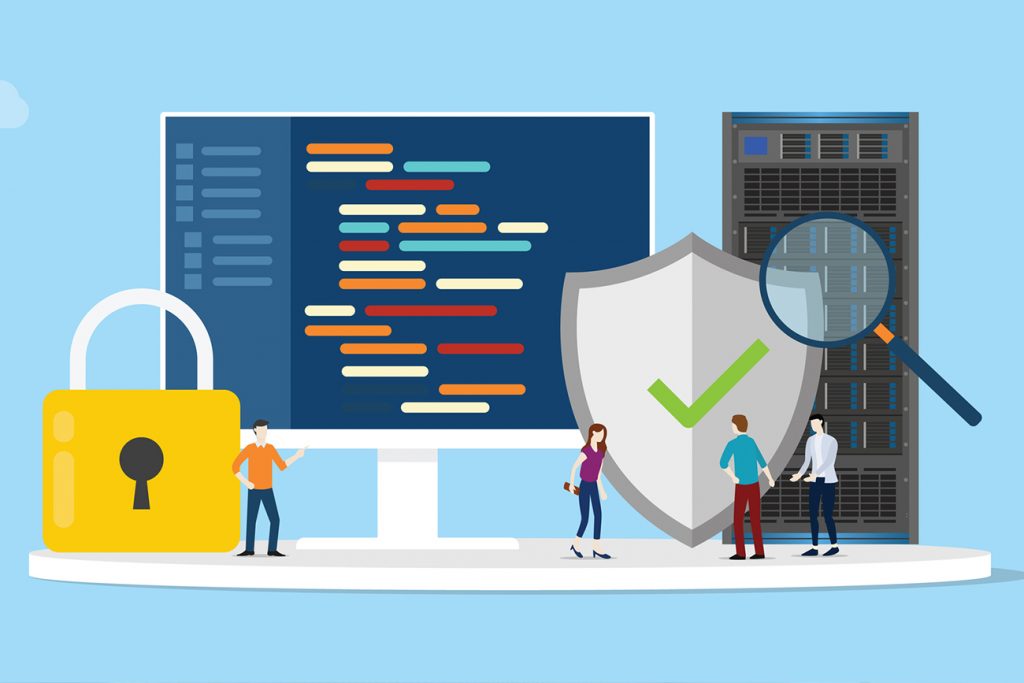Cybersecurity is becoming increasingly more important around the world today, as cybercriminals continue to take advantage of businesses and individuals using malware, viruses, corrupt links, and phishing scams. BrightLink Technology specializes in computer support and IT services in Jacksonville, including cybersecurity. Whether you are a large or small business, here are some tips on how to keep your network, data and systems safe.
1. Educate Your Staff on Cybersecurity Best Practices & Potential Threats
It is important to educate your staff on cybersecurity and how to handle potential threats that may arise. By investing time in educating them on this topic, you provide them with the best tools to master the rapidly emerging technological perils that surround them. It’s smart to provide employee training about email phishing–which accounts for 90 percent of data breaches–especially if that employee has access to the company’s financial accounts or is responsible for customer payment processing or HR. If you keep your employees educated and informed on cybersecurity best practices, they can use this knowledge to keep your company and their work, safe.
2. Utilize Antivirus Software
One of the most common reasons for failures in computers is the lack of antivirus software, or an expired subscriptions. Antivirus software is the “policeman” at the gate of your computer system. It protects your computer from threats, destroys them and warns the system of the danger. Not having antivirus protection on your computer is like inviting an unwanted into your home. Be sure to take the time and effort to utilize antivirus software for the protection of your computer, network and IT infrastructure.
3. Utilize a Virtual Private Network (VPN)
A Virtual Private Network (VPN) allows a private connection to be extended through a public network, like the Internet. This is important because it lets different users access information remotely and securely from home and any other places where employees work remotely. A typical public network (public Wi-Fi) can easily be compromised. But when someone connects through a virtual private network, the data is encrypted. It protect data from being accessed by the wrong person. A VPN has many more positives than just these, including better performance, low costs, flexibility, and more! If you’re not using a VPN currently, we recommend that you look into getting one right away.
4. Set Strong Passwords and Change Them Regularly
Anytime you use a password, you want to make sure it is unique, complex and long. This makes it harder for someone to hack your system. It is recommended that a password be at least ten characters and have a combination of “special” characters such as commas, percent signs and parenthesis, as well as uppercase and lowercase letters and numbers. It is also important to regularly change your password and not use the same password for multiple purposes. All of these are vital because keeping your password safe keeps what’s behind the password safe as well.
5. Back Up Your Data Using Cloud Storage, An Internal Drive or Other Storage Devices
It’s easy to lose data, especially if your computer is holding a lot of information, which can lead to a crash. A hacker or virus can also break into your system and steal or erase all of your data. But, if you back up all of your data regularly, your information will be preserved. It doesn’t take a lot of time or money to back up your information, so it is definitely worth doing.
6. Establish Security Protocols for Remote Workers
It is more likely for a security breach to occur during remote work. Due to this, it is important to establish security protocols to help prevent or handle something like this from occurring. Remote-access technologies are exposed to more external threats, so it is vital to establish security protocols for your remote workers. This is especially critical right now due to the COVID-19 pandemic, which has resulted in many people working remotely.
7. Invest in Managed IT Security & Support with 24/7 Remote Monitoring
With so much cybercrime happening continuously around our world today, you need to consider investing in managed IT security and support. Having an IT professional manage and monitor your systems can protect you so much better than trying to handle it yourself. These services also take the day-to-day systems maintenance off your hands, so you can focus on your core business, and your employees can focus on their jobs.


